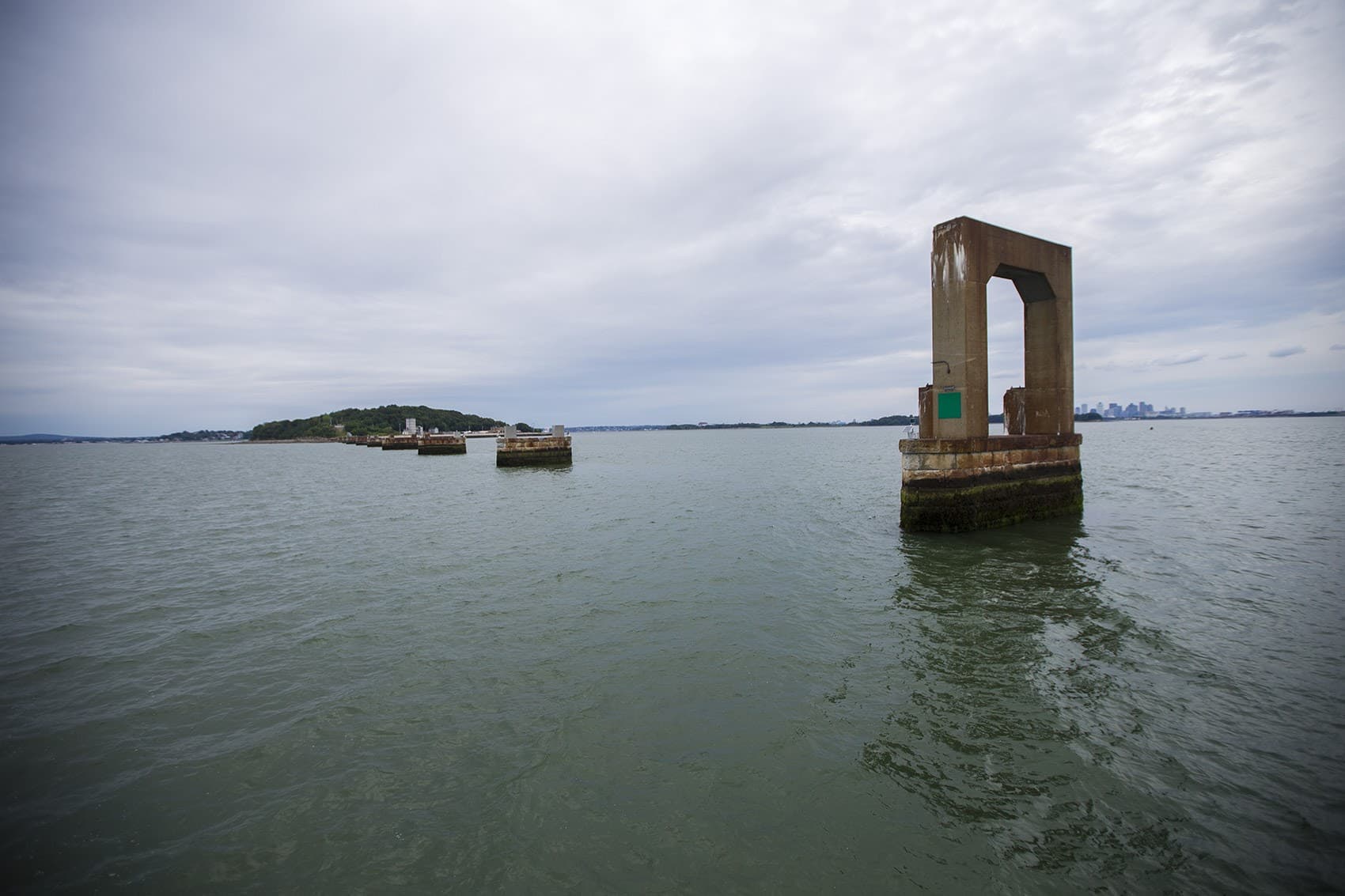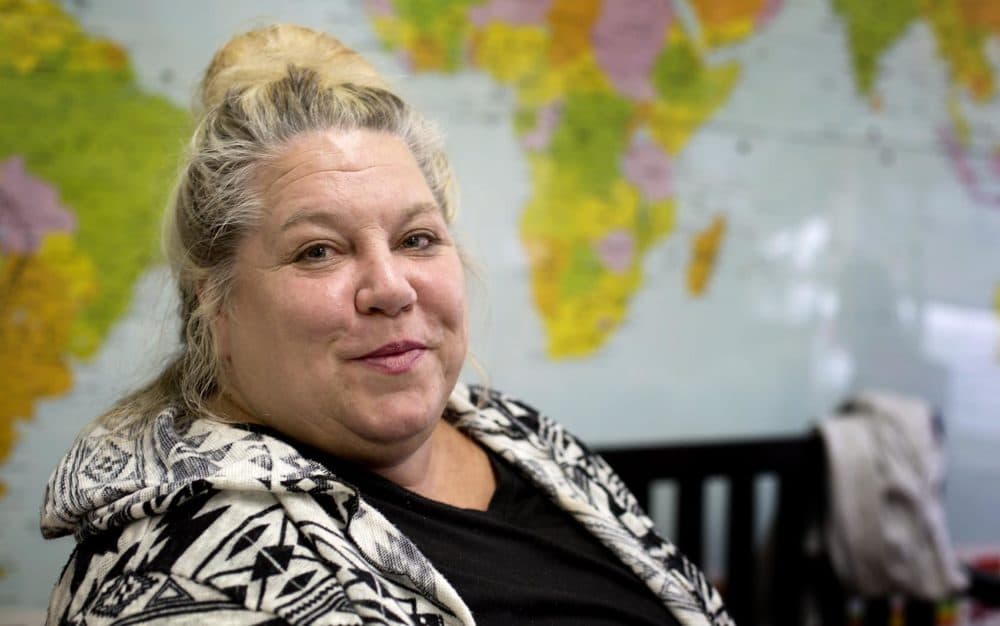Advertisement
Building A Bridge To Long Island — And Maybe Burning A Bridge To Quincy

The city of Boston is pushing forward with efforts to build a new bridge to Long Island and reopen a drug treatment center there after the bridge was demolished three years ago.
But the entrance to the bridge would be in Quincy, which has, so far, rejected Boston's proposals to build a new bridge. Boston owns the island, which is just off the coast of Quincy.
Mayor Marty Walsh and city of Boston officials are hoping a new bridge would be a step that'll stymie the hemorrhaging of the opioid crisis in New England.
The bridge to Long Island, built in the 1950s, was deemed structurally unsound in 2014. As a result, residents of the treatment facility were evacuated. The bridge was then demolished in 2015.
At a Boston City Council hearing Tuesday, Chief of Streets Chris Osgood said he's optimistic the city of Quincy will come around, because Boston's proposal is thoughtful.
"Our approach is about minimizing the environmental impact and any sort of abutter impacts," Osgood said. "It's been actually very helpful for us to have a number of conversations with Quincy that are very open channels of communication and we're hopeful we're able to work with them going forward."
But that's not how Quincy Mayor Thomas Koch sees it. He said the city will fight.
"We've got outside environmental attorneys, engineers looking at every aspect of this," he said. "And we're going to do what we can to see that the bridge is not built."
Koch said for too long Quincy has been the location of Boston's projects like Boston police's shooting range on Moon Island.
The major objection from Quincy residents is additional traffic jams they think the project would create in the congested neighborhood of Squantum, the neighborhood where the entrance of the bridge would go.
Advertisement
But resident Tommy Kelly, who has struggled with addiction, said he believes there's an underlying concern. He thinks many opponents just don't want people with drug issues coming to the area.
"They don't want the stigma going through their neighborhood," Kelly said.
He said people blame construction, but "the construction wouldn't affect it at all. Most of it would be done by barges." This is true, according to Boston city officials. Parts of the bridge would be made on land, then floated into place.
And "traffic coming through," Kelly added "would probably be workers driving their trucks."
But Christine Kenney-Norton said she really doesn't have an issue with people with addiction having a treatment facility off the coast of her hometown.

"The people here in Squantum are very giving and kind and caring," she said. "But when you're putting constant traffic into a small congested area — we only have one road in and one road out."
As much as the city of Boston claims to need the Long Island treatment center, there are very few details on the logistics.
That seemed to irk City Councilor Michael Flaherty at the hearing Tuesday.
"If the mayor of Quincy or the city councilors from Quincy call us, we're gonna look pretty stupid if we can't answer basic questions of: how many beds? what's the breakdown — male to female, adolescent to adult?" he said. "We're just gonna go 'hubbadah, hubbadah, hubbadah.' "
Boston's Public Facilities Department is making plans to visit Long Island to check the conditions of existing structures to determine what can be renovated and what should be bulldozed.
This segment aired on October 3, 2018.
